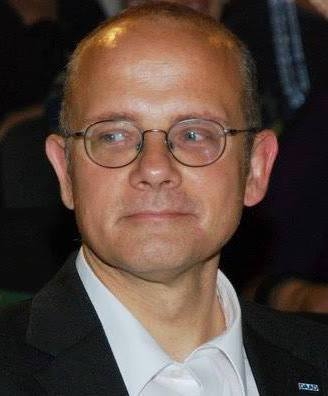[Olga Mefodyeva's interview with Aleksey Zudin, the head of the political programs department at the Center for Political Technologies.]
(Interviewer Olga Mefodyeva) Medvedev's message to the Federal Assembly is normally interpreted as something of a policy of continuation, but is there anything "Medvedevian" in the message?
(Zudin) I would put it differently. The persistent attempts to find a political difference between Putin and Medvedev are natural but unproductive. We have got used to there having to be new policies if there is a new person. But this is not now the case: the new policies are being conducted not by one but by two people. The personality differences between Putin and Medvedev are obvious, but with regard to their politics, they are one person, if you like, one political person.
I would like to share one observation. The presidential message was in many respects unexpected, journalists have already christened it "revolutionary." In reality, a whole series of measures for reforming the political system, including amendments to the current constitution, have been suggested. The message contains an extremely negative assessment of the state-bureaucratic procedures, which have developed in our country. It also spoke of "the cult of the state" and about the belief in the "ostensible wisdom of the state apparatus," it was stated that the bureaucracy has turned into a self-sufficient entity, which has adapted everything for itself and, in the final analysis, considers itself to be the people. However, the president's proposals for reforming the political system are quite cautious, conservative, it might be said. And a conservative reform is probably preferable since we remember several radical reforms, which caused fragments of the old order to fall directly on our heads. So the conservatism and caution, with which the president is approaching the updating of the political system, are a good sign.
Nevertheless, a contradiction arises between the energetic discussion of the state-bureaucratic order and the caution of the measures proposed. It is well-known that the president personally worked on the message, so the appearance of any accidental paragraphs can be ruled out. It is has been internally adjusted and crafted.Taking these circumstances into account, the contradiction we have noticed acquires a special meaning. It is of fundamental importance that the president has to all intents and purposes morally destroyed the political order, which is based on the omnipotence of the state bureaucracy. An important signal has been sent to the elite and to society: despite the fact that progress will be cautious, gradual and slow, there will be no return to the past. By giving a corrosive assessment of the bureaucratic order, the president has to all intents and purposes burnt his bridges, he has destroyed all possibility of back-pedalling. What he said about Russia's position on the Caucasus can also be applied to the political reform: "We will not cave in!"
(Mefodyeva) But is it possible that charges against the bureaucracy that it is "the largest employer," "the most active publisher," "the best producer," "its own judge, its own party" are simply an attempt to make it a "scapegoat"?
(Zudin) In itself, the charge against the bureaucracy, that it is the source of all evil, is traditional for our country.Throughout our history, the political leadership has from time to time entered into battle with the bureaucratic apparatus. But, in my view, it is now a matter of a new ideology for the reforms, the essence of which amounts to subordinating the bureaucracy to the state and in so doing creating a space for citizens' freedoms. If we recall, the president cites Stolypin in his message: "First the citizen, then citizenship," and he added, "But in our country we have often had the opposite." So, in my view, the important point of the new ideology of reform is the change of order. First a certain space needs to be created, first we need to allow civil qualities to take root and develop. Citizenship, in the sense of a free and strong public, that is, a civil society, arises as a result, and it derives from the citizen. This means an orientation towards the cultivation of a civil society in Russia, in contrast to a simple institutional import.
(Mefodyeva) If there is a political policy of cultivating civil society, citizenship, and the citizen, then in this sense, what measures can our authorities take to accomplish the task?
(Zudin) Let us recall the slogan with which Medvedev entered the election campaign: "Freedom is better Than Non- Freedom!" This slogan surprised many people and gave rise to hopes, often impossible ones, because it was not interpreted appropriately: rights and freedoms--all of them and immediately! Citizenship starts with the law and economic freedom, with all those who work independently, from an economic point of view, being freed from the multitude of restrictions, in which they were entangled in the 1990s. This was a subsidiary result of the reforms at the time. We need to start with creating a law-based space for citizens' development. The construction of a democratic state will not be postponed "until later", but it will be created gradually.
Source: http://www.politcom.ru/article.php?id=7157, November 11, 2008, and "Johnson's Russia List" # 209, 2008.




